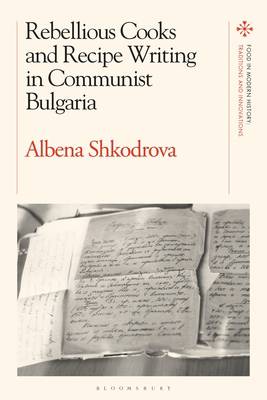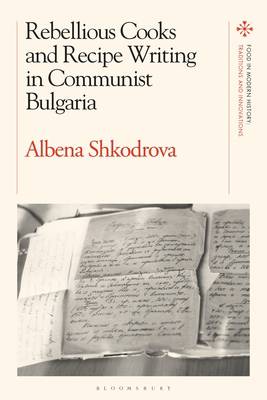
- Afhalen na 1 uur in een winkel met voorraad
- Gratis thuislevering in België vanaf € 30
- Ruim aanbod met 7 miljoen producten
- Afhalen na 1 uur in een winkel met voorraad
- Gratis thuislevering in België vanaf € 30
- Ruim aanbod met 7 miljoen producten
Zoeken
Rebellious Cooks and Recipe Writing in Communist Bulgaria
Albena Shkodrova
€ 72,95
+ 145 punten
Uitvoering
Omschrijving
How did people exist and resist in their daily lives under Soviet control in the Cold War period? Shkodrova's monograph shows how in communist Bulgaria many women passionately exchanged recipes with friends and strangers, to build substantial and impressive private collections of recipes. This activity was borderline contraband in going against the general disapproval of home cooking that formed part of the ideology of communism, in which home cooking was considered household slavery and an agent of patriarchalism.
Private recipe collections were by far the preferred written source of culinary information, more popular than the state-approved commercial cookbooks. Shkodrova shows how these recipe collections held many different meanings for the women who collected them, from helping to navigate the communist economy, to enabling new friendships to be developed while engaging safely in power relations, and cultivating a sense of individual identity in a society where collective existence was prioritised and exalted. Drawing on primary sources including scrapbook cookbooks and working from the establishment of cookery classes before communism and their obliteration thereafter, Shkodrova presents a structured outline of the meanings of recipes exchange and home cooking for Bulgarian women under communism.Specificaties
Betrokkenen
- Auteur(s):
- Uitgeverij:
Inhoud
- Aantal bladzijden:
- 200
- Taal:
- Engels
- Reeks:
Eigenschappen
- Productcode (EAN):
- 9781350205444
- Verschijningsdatum:
- 25/08/2022
- Uitvoering:
- Paperback
- Formaat:
- Trade paperback (VS)
- Afmetingen:
- 156 mm x 234 mm
- Gewicht:
- 285 g

Alleen bij Standaard Boekhandel
+ 145 punten op je klantenkaart van Standaard Boekhandel
Beoordelingen
We publiceren alleen reviews die voldoen aan de voorwaarden voor reviews. Bekijk onze voorwaarden voor reviews.







